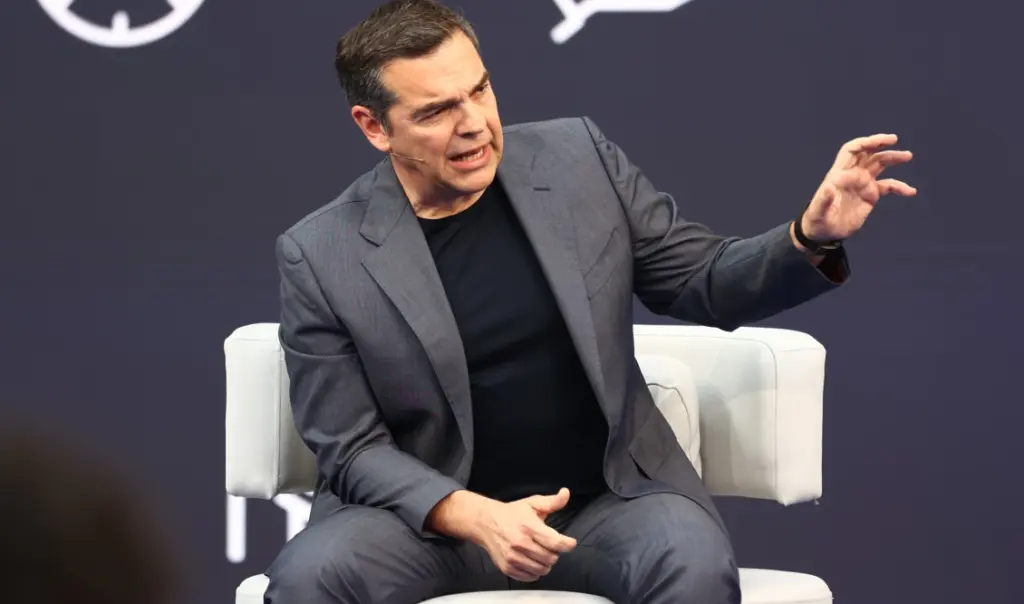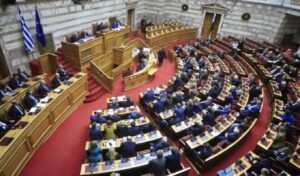The resignation of Alexis Tsipras from his parliamentary position has triggered explosive developments across the center-left, a move that leads with mathematical precision to the creation of a new political entity by the former prime minister. This resignation catalytically affects, first and foremost, SYRIZA, significantly impacts New Left, while also complicating PASOK’s prospects of closing the gap with New Democracy.
In essence, with today’s choice, Mr. Tsipras accelerates his already-decided plan to create a new party, with more center-left characteristics and as many new faces as possible. “From the moment the resignation move was made, the timing matters little,” a close associate of the former prime minister tells parapolitika.gr regarding the party’s creation timeline. In any case, it’s calculated that the first months of the new year will see the emergence of the “Tsipras party.” This will be preceded by the presentation of his book, which will settle pending issues related to his governance record and more.
Which figures will join Alexis Tsipras in the new party
The central question is naturally which figures will move forward from this point, given that he won’t enter any negotiation process with SYRIZA, New Left, etc. In practice, extensive casting is expected among figures who aren’t burdened and aren’t characterized by toxicity. The first name on the black list is naturally Pavlos Polakis, who has already rushed to attack Mr. Tsipras, while his relationship with Nikos Pappas has also hit rock bottom.
We’ll get a first taste of Alexis Tsipras’s intentions from the announcement of names participating in his foundation’s scientific council. Sources from Amalias Avenue indicate these will be figures with reformist and pro-European credentials. Already working “alongside” Mr. Tsipras are officials and academics like Giorgos Vasiliadis, Dimitris Liakos, Giorgos Chouliarakis, Michalis Kalogirou, while reports suggest former minister Ilias Mosialos also views the venture positively.
MPs and officials with Gerovasili at the top
People familiar with SYRIZA’s political geography emphasize that more than half of its MPs will be found on the new party’s ballots, as well as many regional politicians. Central figure Olga Gerovasili will play a significant role in the new entity, as she’s a person of stature, broad acceptance, and longtime collaborator of Mr. Tsipras. The list is long and according to initial reports may include Katerina Notopoulou, Giorgos Karameros, Kostas Barkas, Vasilis Kokkalis, Alexandros Meikopoulou, Symeon Kedikoglou, Charis Mamoulakis, Giorgos Psychogios, Popi Tsapanidou, Miltos Zabaras, Giorgos Papailou, Marina Kontotoli, among others.
The same applies to a significant portion of SYRIZA’s executive staff, who will certainly follow Mr. Tsipras. The most characteristic cases are spokesman Kostas Zachariadis, secretary Stergios Kalpakis, as well as central officials like Alekos Flabouraris, Giannis Balafas, Thanasis Theocharopoulos, Giannis Ragkousis, among others. It’s obvious that MEP Kostas Arvanitis will be alongside Mr. Tsipras, while it’s very likely that both Nikolas Farantouris and Elena Kountourá will follow him.
Famellos’s difficulty
By necessity, Mr. Famellos’s position is extremely difficult and awkward, especially if he chooses to keep SYRIZA despite the mass departures that will follow when the new party is officially announced. In this scenario, Mr. Famellos would need to create a new leadership core characterized by a triumvirate with Messrs. Polakis and Pappas, while possibly including Rena Dourou, who maintains a very cautious stance. In any case, Koumoundourou enters a very complex situation that will be anything but politically bloodless, as it’s a matter of time before top party officials respond to Pavlos Polakis and his attacks against the former prime minister.
New Left…
As mentioned earlier, developments also affect New Left. Its leadership core is far from indifferent to Tsipras’s moves, with Alexis Charitsis, Efi Achtsioglou, Dimitris Papadimoulis, Nikos Voutsis, Nikos Bistis, Dimitris Tzanakopoulos and others having spoken about the need for broader alliances. Obviously they don’t treat Mr. Tsipras as a messiah, however they believe programmatic understanding is possible. Certainly with some of the aforementioned figures, a series of issues that arose in summer 2023, after the national elections and Tsipras’s resignation from SYRIZA’s presidency, will need to be overcome.
In New Left, however, there’s also a significant portion of the executive staff that is almost obsessively opposed to Mr. Tsipras. Such as Euclid Tsakalotos, Nikos Filis, Panos Skourletis, Gabriel Sakellaridis, Pety Perka, among others.




